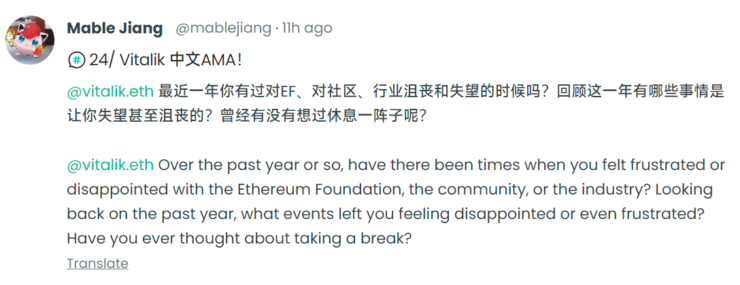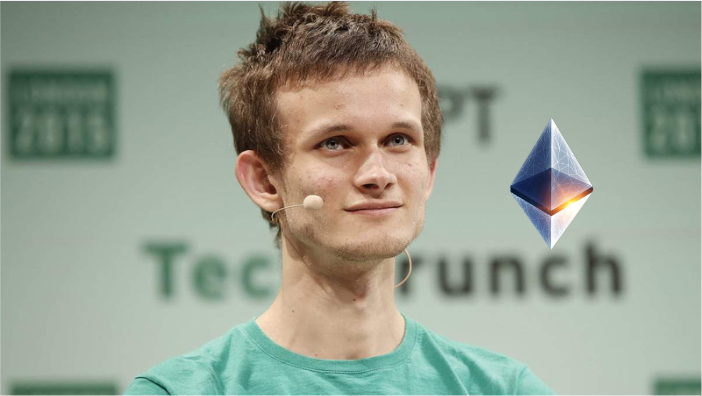Ethereum co-founder Vitalik Buterin has voiced concerns over a “moral reversal” in the crypto space, particularly around Ethereum’s stance on blockchain gambling. Speaking in a February 20 AMA (Ask Me Anything) session, Buterin pushed back against criticism that Ethereum is “intolerant” for not fully embracing blockchain-based casinos—a stance that has sparked debate over decentralization, governance, and the ethical direction of the industry.
Buterin’s comments suggest that crypto’s original mission financial empowerment, decentralization, and trustless technology may be at risk of being overshadowed by unregulated speculative projects. The question now is: Will the industry course-correct, or is it heading toward a purely profit-driven model?

The Gambling Debate: Is Ethereum ‘Too Selective’?
During the AMA, Buterin highlighted his disappointment with the backlash against Ethereum for its hesitation toward blockchain-based casinos. He expressed concerns over a shift in community values, saying:
“Perhaps the most disappointing thing for me recently was when someone said that Ethereum is bad and intolerant because we don’t respect the ‘casinos’ on the blockchain enough, and other chains are happy to accept any application, so they are better.”
The comment reflects a growing divide in the industry should blockchain technology be completely neutral, allowing all applications regardless of ethical considerations? Or should networks like Ethereum take a stance on what kinds of applications align with its vision for the future?
Buterin warned that if the crypto space continues in this direction, with platforms prioritizing high-risk speculative projects over responsible decentralization, he would no longer be interested in participating.
Is the Crypto Community Still Aligned with Its Original Vision?
Despite his concerns, Buterin remains optimistic about the core values of Ethereum and the wider blockchain community. He noted that offline interactions with Ethereum builders and supporters have reassured him that the industry’s core values remain intact, even as online discourse shifts toward profit-driven narratives.
He also emphasized that Ethereum should not abandon its responsibilities, calling on the community to take a more active role in shaping the blockchain world they want to see.
“I have a responsibility to the community and cannot abandon it,” Buterin said.
This statement suggests that Ethereum may take a more active role in governance and project selection, rather than adhering to a strictly neutral, application-agnostic approach.
Ethereum Foundation Adjusts Its Funding Strategy
Buterin’s remarks come at a time when the Ethereum Foundation is changing its approach to funding mechanisms, signaling a potential shift in governance philosophy.
- On January 20, Ethereum community members criticized the foundation for selling ETH to fund operations, arguing that alternative DeFi-based solutions could have been used instead of direct sales.
- On February 13, the Ethereum Foundation responded by deploying 45,000 ETH ($120 million) into DeFi protocols like Aave, Spark, and Compound, integrating Ethereum’s treasury into the decentralized finance ecosystem rather than selling assets outright.
This move was widely praised by the community, marking a shift in Ethereum’s financial management approach. The foundation also indicated that staking and other decentralized solutions are being considered, asking for community input on future fund deployment strategies.
What This Means for Ethereum and Crypto’s Future
Vitalik Buterin’s concerns over a “moral reversal” in crypto highlight a growing ideological battle within the space:
- Should blockchains remain entirely neutral, allowing all applications including high-risk gambling and speculative projects without interference?
- Or should leading blockchain networks like Ethereum take a more active role in shaping the ethical direction of the industry?
His remarks also raise bigger questions about decentralization:
- Will Ethereum’s stance influence other chains, or will blockchains that welcome any and all applications including gambling and high-risk financial tools, gain more traction?
- How should blockchain networks balance financial freedom with ethical concerns?
What Happens Next?
The Ethereum Foundation’s recent shift in treasury management suggests that Ethereum may be willing to take a more active role in shaping the network’s future.
Meanwhile, the broader crypto industry will have to grapple with the philosophical divide between absolute neutrality and responsible governance.
If Buterin’s concerns prove valid, Ethereum may need to clarify its stance on blockchain applications, governance, and ethical responsibility. How the community responds could shape the next phase of crypto’s evolution either reinforcing its original vision or accelerating its transformation into a profit-maximizing industry, detached from its founding ideals.





